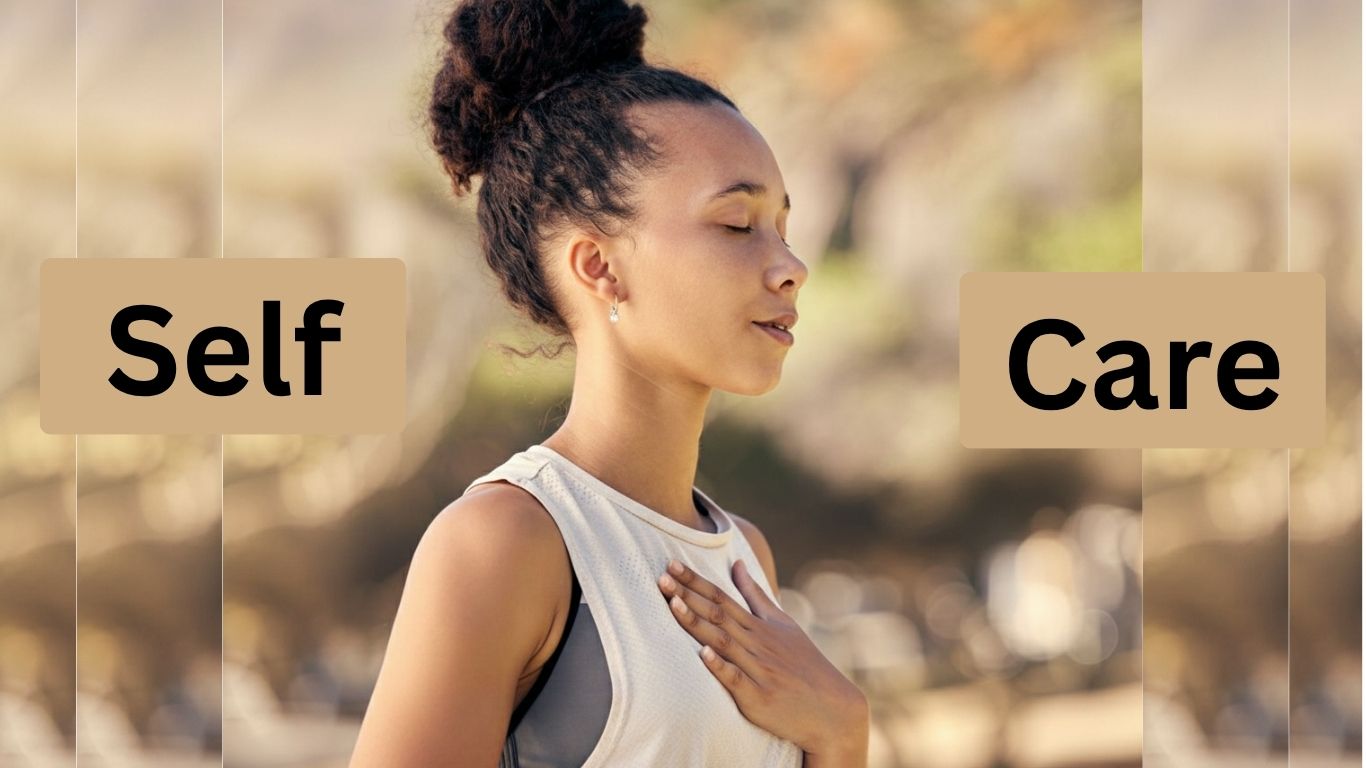How are you caring for yourself today?
All the stress-relief activities in the world won’t truly help if we aren’t taking care of ourselves. Self care is more than just a buzzword—it’s the foundation of a healthy, balanced life. By definition, self-care is “a multidimensional, multifaceted process of purposeful engagement in strategies that promote healthy functioning and enhance well-being.”1
In simpler terms, selfcare means looking after yourself—physically, mentally, and emotionally—to ensure your needs are met.
Self-care is important because it helps re-establish balance and avoid burnout. It is often the mechanism of recalibrating and getting in touch with our ability to play, have fun, relax, and connect.
Good self care practices can take many forms. It might mean getting enough sleep, taking short breaks to breathe fresh air, or setting aside time for the things that bring you joy.
Sometimes, you’ll need extra self care strategies in a particular area of your life to restore balance or relieve stress. True self-care is about finding harmony—knowing when your body, mind, or spirit needs attention—and taking conscious action to nurture those needs.
At a Glance:
Self-care is a deliberate act that promotes your physical, mental, emotional, and spiritual health. It’s essential for building resilience against life’s unavoidable stressors. When you prioritize your well-being, you’re not just surviving—you’re thriving.
Unfortunately, many people still see self-care as a luxury rather than a necessity. This mindset leaves us drained, overwhelmed, and unprepared for life’s challenges. That’s why it’s crucial to regularly assess how you’re caring for your mind, body, and spirit—and to make self care a consistent, non-negotiable part of your daily life.

Physical Self-Care
We need to take care of our bodies if we want them to function efficiently. Remember, there’s a powerful connection between the body and the mind—when we care for our bodies, we also help our minds think clearer and feel better.
Physical self-care includes fueling your body with healthy foods, getting enough quality sleep, staying active, and addressing your physical needs. Attending regular healthcare appointments, taking prescribed medications, and managing your health responsibly are all part of effective self care practices.
“Exercise is a tangible instance where you can observe the payoff of your perseverance towards a goal,” says clinical psychologist Sabrina Romanoff, PsyD. “You can push past the limitations of your mind and prove to yourself that you’re stronger than you previously thought. This is one of the ways exercise helps with confidence and resilience.”
When it comes to physical self-care, ask yourself the following questions to identify areas that may need more attention:
- Are you getting adequate sleep?
- Is your diet truly fueling your body?
- Are you taking charge of your health?
- Are you getting enough exercise?
Social Self-Care
Socialization is a key part of self care. Yet, in our busy lives, it’s easy to neglect friendships and meaningful connections when schedules get overwhelming.
Close relationships are essential for emotional well-being and balance. The best way to cultivate and maintain these bonds is to invest genuine time and energy into the people who matter most.
There isn’t a specific number of hours you should dedicate to friends or family. Everyone’s social needs are different. The goal is to understand your unique social needs and make space in your schedule to build and maintain an optimal social life.
To evaluate your social self-care, ask yourself:
- Are you getting enough face-to-face time with your friends?
- What steps are you taking to nurture relationships with your friends and family?
Mental Self-Care
The way we think and what we allow into our minds greatly influence our overall psychological well-being.
Mental self-care involves engaging in activities that keep your mind sharp and active—like solving puzzles, learning new things, or exploring subjects that truly fascinate you. You might find that reading an insightful book or watching an inspiring movie helps to refresh and fuel your mind.
Beyond stimulation, mental self-care also means nurturing a healthy inner world. Practicing self-compassion, acceptance, and positive self-talk are powerful ways to build emotional resilience and maintain peace of mind.
Ask yourself these questions to assess your mental self-care:
- Are you making enough time for activities that mentally stimulate and challenge you?
- Are you taking proactive steps to support your mental health every day?
Spiritual Self-Care
Research shows that living a life rooted in spirituality or religion often leads to better overall health and well-being.
However, nurturing your spirit doesn’t have to involve organized religion. It can be anything that helps you find a deeper sense of purpose, meaning, or connection with the universe around you.
Whether it’s meditation, prayer, attending a religious service, spending time in nature, or simply reflecting quietly, spiritual self-care allows you to align your inner self with something greater.
As you reflect on your spiritual life, ask yourself:
- What questions do you ask yourself about your life and experiences?
- Are you engaging in spiritual practices that you find personally fulfilling and grounding?
Emotional Self-Care
It’s essential to develop healthy coping skills for managing uncomfortable emotions such as anger, anxiety, and sadness. Emotional self-care involves engaging in activities that allow you to acknowledge, process, and express your feelings in safe and healthy ways.
This might mean talking with a partner or trusted friend about how you feel, journaling your emotions, or setting aside time for activities that calm and recharge you. Whatever the method, regularly practicing emotional self-care helps you build resilience and emotional balance.
When evaluating your emotional self-care strategies, ask yourself:
- Do you have healthy ways to process and express your emotions?
- Are you engaging in activities that help you feel emotionally recharged and balanced?
Why Is Self-Care Important?
Having an effective self care routine provides a wide range of proven health benefits. Research shows that regular self-care practices can:
- Reduce anxiety and depression
- Lower stress levels and improve emotional resilience
- Boost overall happiness and life satisfaction
- Increase daily energy and motivation
- Prevent burnout
- Strengthen interpersonal relationships
According to the World Health Organization (WHO), self-care is essential because it helps promote health, prevent disease, and enable people to better cope with illness and daily challenges.
Certain self care strategies are even linked to long-term wellness and longevity. Consistent exercise, quality sleep, and maintaining a sense of life purpose have all been associated with a longer, healthier life.
Develop Your Self-Care Plan
An effective self care plan should be personalized to your life, priorities, and emotional needs. It’s something created by you, for you. Building your own plan acts as a powerful preventative measure, helping you avoid feeling overwhelmed, overstressed, or burned out.
Start by assessing which areas of your life need more attention and self-care. Revisit your plan often—because as your life changes, your self-care needs will likely shift too.
Here are a few practical steps to help you develop your self-care plan:
- Assess Your Needs:
List the major areas of your life—such as work, school, relationships, and family—and note where you spend most of your time and energy. - Consider Your Stressors:
Identify what aspects of these areas cause stress, and think about ways to reduce or manage that stress effectively. - Devise Self Care Strategies:
Create a list of self care practices that help you feel balanced in each area. For example, setting boundaries, exercising, or spending time with supportive friends can promote mental and emotional well-being. - Plan for Challenges:
When you notice you’ve been neglecting a certain part of your life, outline a realistic plan for improvement and take action. - Take Small Steps:
You don’t have to fix everything at once. Choose one small step today that moves you closer to a healthier, more mindful lifestyle. - Schedule Time for Yourself:
Even when life feels busy, make self-care a non-negotiable priority. The more consistently you nurture yourself, the more effectively and efficiently you’ll function in every part of life.
Keep in Mind
The demands of your daily life will often determine which type of self care you need most at any given time.
For example, a busy college student who’s constantly mentally stimulated and surrounded by people may need to focus more on physical self-care—getting enough rest, eating well, and maintaining balance. On the other hand, a retired person might benefit more from social self-care, ensuring they stay connected and engaged with others.
Remember, self-care isn’t a one-size-fits-all approach. Your plan should be customized to your unique lifestyle, energy levels, and emotional needs.
Don’t wait until you reach your breaking point before taking action. The goal of self care is to make intentional choices every day that help you recharge, stay balanced, and handle life’s challenges with strength and clarity.



One Comment